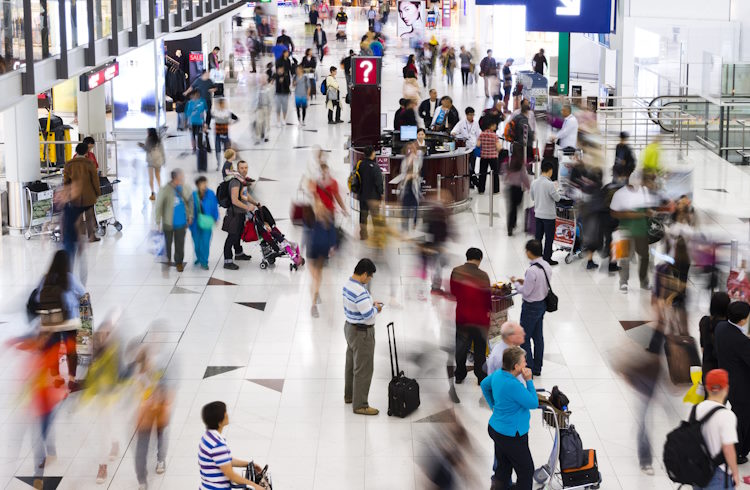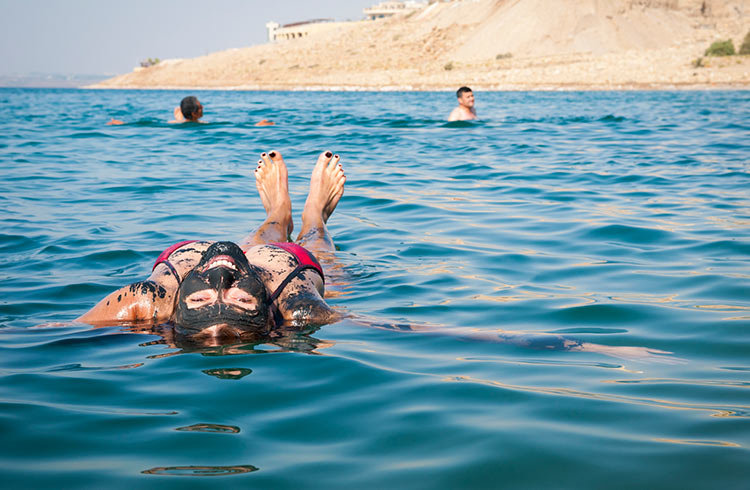ADHD and Travel: Tips and Strategies for Solo Travelers
The impulsiveness and intensity that comes with ADHD can be a challenge for travelers – but it can also be a benefit. Madelaine Millar shares her tips and coping strategies for managing ADHD while traveling.
 Photo © Getty Images / baona
Photo © Getty Images / baona
Getting on a plane to the other side of the planet, especially if you’re traveling alone, is an adrenaline-filled experience no matter what. But when your impulsiveness, forgetfulness, sensitivity, and inability to concentrate have caused problems all your life, it can be genuinely terrifying. When I was diagnosed with ADHD at the end of 2022, I worried it meant my newest project – life as a digital nomad – was doomed to fail. Could I trust myself to juggle the responsibilities and challenges of solo travel, or was I going to find myself broke and sobbing in a train station with nowhere to sleep?
But in learning to work with my neurochemistry, ADHD has become one of the coolest tools in my overstuffed carry-on. My intense interests and impulsive approach have found me drinking coffee with a guru in the forests of Nepal, exploring MC Escher’s optical illusions in Amsterdam, diving in a coral farm off the coast of Honduras, pruning grape shoots at a sustainable winery in rural Texas, and so much more.
When you accept the unique challenges of your neurotype and minimize their potential harm, ADHD-friendly travel is not just possible, but genuinely delightful.
- Planning tips for travelers with ADHD
- Dealing with meltdowns and shutdowns
- Budgeting with an impulse control disorder
- Traveling with ADHD medication
- General ADHD travel tips and coping strategies
Planning tips for travelers with ADHD
Brains with ADHD are motivated by interest, novelty, competition, and urgency. Abstract importance or shame won’t get you moving, and thanks to something called Pathological Demand Avoidance, a sense of obligation can actually make it harder to get things done. So instead of starting with the stuff you “should” book, fall down a rabbit hole about whatever gets you excited. When traveling alone in Germany before diagnosis and medication, I couldn’t concentrate for long enough to book my hostels or busses more than a day in advance – until I found out the world’s largest miniature train museum was in Hamburg, and the novelty and interest gave me the boost I needed to arrange three days of travel plans to go see the museum.
Figure out what’s important to organize early, and what you can book on the fly. The first category includes your travel documents and vaccines, and booking most flights. Arranging your travel insurance early is a good idea, too, since it helps ensure you’re covered for things that may impact your trip before departure.
Depending on your destination, the second category might include hotels, tours, ground transportation, and restaurant reservations. Try listing everything out, from most important to least important, and working your way down until you run out of oomph. Avoid the peak of the tourist season, major holidays, and local festivals to make it easier and more affordable to book these items on the fly.
Dealing with meltdowns and shutdowns
When someone with ADHD gets too far outside their window of tolerance, it usually leads to either a meltdown (a period of extreme emotional volatility, anything from rage to uncontrollable crying) or a shutdown (a period of physical, mental, or emotional paralysis). From the inside, it feels like your brain hit its limit and just stopped working; melting down in Salt Lake City on the eve of three days alone in the desert of the American southwest is still one of the scariest and most upsetting experiences I’ve ever had.
First, accept that meltdowns and shutdowns are inevitable for solo travelers with ADHD. Experiencing one is part of your neurochemistry; shame will only make it worse.
Next, harm reduction; if your body gets stereotyped as dangerous, a public meltdown could mean getting tangled up with law enforcement, while a public shutdown in a body that gets stereotyped as exploitable could make you a target for pickpocketing or kidnapping. Brains with ADHD may struggle making strings of decisions, but they excel at crisis management, so when you feel a meltdown or shutdown approaching, treat it as the emergency it is. You have one goal: get somewhere safe and private as quickly as possible.
Once you’re there, let yourself go. Scream into a pillow, shake your body, lay face down; whatever feels right. Then, start recovering. I follow the 5S method, a modified hangover cure I learned during a study-abroad in Paris: sleep, sip (water), shower, sh*t, snack. Taking care of your body will make you feel more stable and help you to rebuild trust in yourself to handle whatever comes next.
Lastly, don’t panic. Melting or shutting down doesn’t mean your trip is a disaster. Once I’d taken care of my body and mind, those three days in the desert were beautiful, meaningful, and tons of fun.

Budgeting with an impulse control disorder
Managing money with an impulse control disorder is hard. What’s more, folks with ADHD often have a chaotic allergic reaction to shame; I once spent $26 on a vegan po-boy to distract from the shame of buying a cross-body bag I couldn’t afford while visiting New Orleans. It can go in the other direction too, like the time I skipped so many meals I felt faint to avoid feeling ashamed about the expensive concert ticket that had brought me to Reno.
Start by creating two budgets: what you’d like to spend on your trip, and what you can spend while still meeting your other commitments. Treat the first number like a warning light; there’s no shame in hitting it, but once you do, it’s time to start spending more conservatively. Concentrate your limited impulse control where you really need it.
Constantly watching your spending will also tax those limited executive function resources. Instead, create some friction that will prompt you to check your budget on a regular basis. Set a regular phone alarm to open your banking app, or go cash-only and check your budget every time you visit an ATM.
Traveling with ADHD medication
This is tricky, because whether medications like Adderall are controlled substances – or legal at all, even with a prescription – varies from country to country. The CDC recommends checking your destination’s embassy, as well as any countries where you may have layovers, to ensure you’re meds are permitted. You may need to carry a prescription or a doctor’s note, or in extreme circumstances, look into either a different destination or a different treatment plan. Visit your local ISTM travel clinic to find out how to travel with your meds, and to obtain any other vaccinations or preventative medications you’ll need.

General ADHD travel tips and coping strategies
- My number one coping strategy for ADHD when traveling alone is emergency high-protein travel snacks. 200 calories and 15 grams of protein have saved me from a meltdown or shutdown more times than I can count.
- The shame of failing to stay on top of my ambitious schedule to learn fluent Thai meant I didn’t study at all until I was on the plane over, panicking. Avoid that trap by setting your language-learning bar low.
- Struggling to communicate can trigger rejection-sensitive dysphoria: extreme emotional pain in response to perceived rejection. Knowing this in advance and naming it when it happened helped me to keep trying, instead of feeling absolutely crushed when my terrible airplane Thai didn’t work.
- When you book any ticket, set a phone alarm. You’ll thank yourself when the “90 minutes: train to Milan” alarm goes off when you've gone time-blind in a cool museum, or forgotten you had a ticket booked at all.
- Before you leave, start thinking about how to use what works at home for managing ADHD, and comorbid conditions like anxiety. Don’t abandon your coping strategies just because you crossed a border.
- Create a travel uniform. It’s harder to forget your passport when it’s in the same pocket of the same jacket every time.
- Find a way to track your plans that’s easy enough that you’ll do it consistently. It doesn’t have to be pretty, either; for me, it’s putting every confirmation email I get straight into one huge, messy folder.
- Pack light; you will find stuff you want.
Finally, murder the word “should”. As long as you’re comparing your solo travel experience to a neurotypical archetype, you’ll feel like you’re falling short. Hand over the reins, and your unique brain will spot adventures other people would never imagine.



No Comments